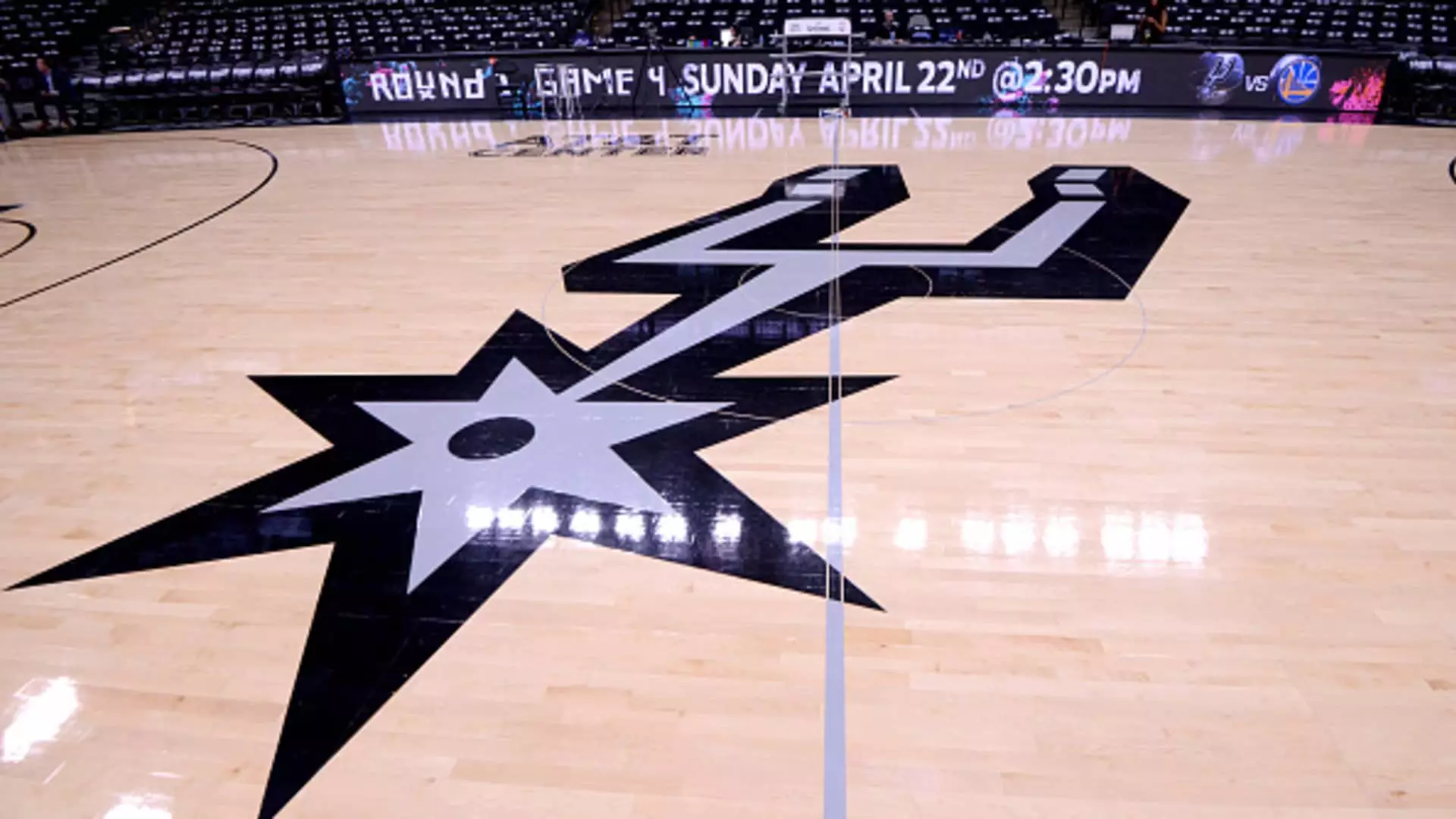In a notable maneuver indicative of the evolving landscape of sports investments, Paul Viera, the CEO of Earnest Partners, has escalated his stake in the San Antonio Spurs from 5% to 11%. This strategic decision reflects not only confidence in the Spurs but also a recognition of the overall rising valuations of NBA franchises. With the league seeing unprecedented growth thanks to lucrative media deals, investors are increasingly drawn to basketball teams as attractive commodities.
Viera’s recent acquisition involved purchasing the remaining share held by Aramark, a food service corporation, at what is believed to be a significantly discounted rate. This acquisition places the Spurs’ valuation at an impressive $2.5 billion, according to insider sources familiar with the transaction. Viera’s increased ownership stake significantly enhances his influence within the team, despite the historical challenges faced by the Spurs in recent seasons.
The investment landscape within the NBA often allows for partial owners to secure favorable deals, particularly for smaller percentages of ownership. This trend is underscored by Viera’s initial purchase of a 5% stake last May, which was finalized without public disclosure of the valuation at that time. The dynamics of NBA ownership are shifting, particularly as highlighted in Aramark’s financial disclosures, which noted a substantial $1.1 million pretax loss from their share in the Spurs during the fiscal year.
The Spurs are primarily owned by Peter Holt, who has played a pivotal role in the team’s management as the managing partner of Spurs Sports & Entertainment. The organization operates the team’s home arena, the Frost Bank Center, and has a lineage in the NBA that dates back to their acquisition in 1996. In addition to Viera, other minority owners include prominent figures such as Michael Dell and David Robinson, a former Spurs star whose legacy still resonates within the franchise.
Despite a storied history that includes five championship titles, the Spurs have faced challenges recently, finishing with a disappointing 22-60 record in the 2023-24 season. However, the arrival of promising rookie Victor Wembanyama could signal a turning point for the franchise, both on the court and in its financial prospects.
Viera’s acquisition underscores a burgeoning trend within the NBA: the diversification of ownership. The league has actively sought to include a larger number of minority owners and former players in top management positions. Other examples in this movement include the likes of Grant Hill, Dwyane Wade, and Michael Jordan, whose investments in various franchises point to a positive shift towards increased inclusivity within the sport.
This shift is significant as the league’s demographics continue to evolve and the NBA front office becomes more representative of its player base. The commitment to diversity among owners could lead to hard-to-predict innovations and dynamics in how these teams are managed, marketed, and funded.
The Broader Economic Landscape of the NBA
Currently, the NBA franchises are viewed as hot commodities, largely due to the recent media rights expansion that reported an eye-watering $76 billion deal over the next eleven years. Such increases in valuation for teams like the Bucks, which recently saw a preferred limited equity stake purchased for $3.4 billion, exemplify the growing desirability of NBA teams as investment opportunities.
Furthermore, with teams like the Boston Celtics poised to fetch upwards of $6 billion as current controlling stakes enter the market, the financial allure of owning a minority piece of a franchise is becoming increasingly attractive. The Grousbecks’ announcement to sell their majority share in the Celtics after a successful Finals run illustrates the financial blessings available in this competitive landscape.
As Paul Viera increases his stake in the San Antonio Spurs, the implications stretch far beyond his individual investment. This maneuver is tied to a larger narrative concerning the NBA’s valuation trends and ownership diversity movements. With emerging stars like Wembanyama lighting a path for renewed competitiveness and influence in league operations, the Spurs, under Viera’s growing stake, may find themselves poised for a resurgence. The landscape of NBA ownership is undeniably shifting, and it will be fascinating to observe how these changes unfurl for both the Spurs and the league at large in the coming seasons.

